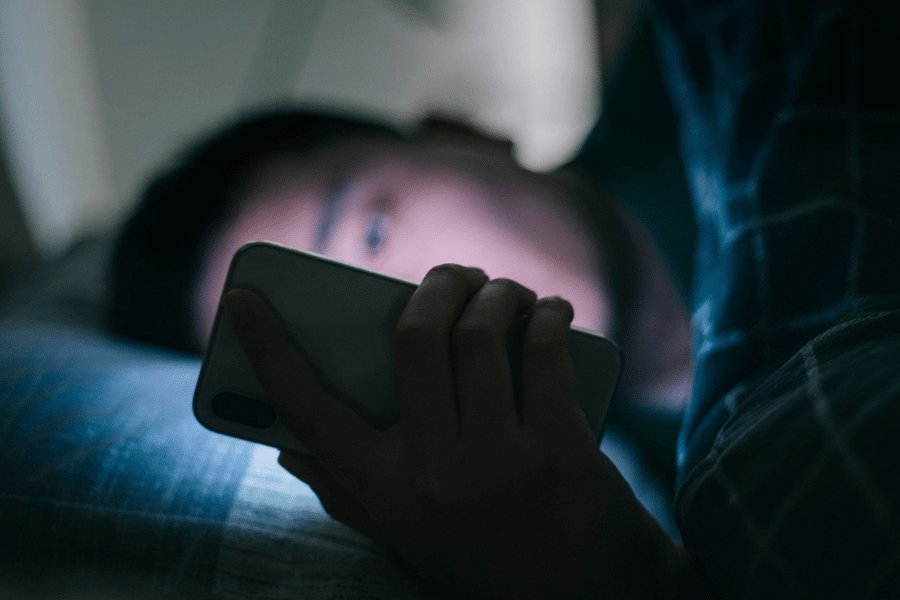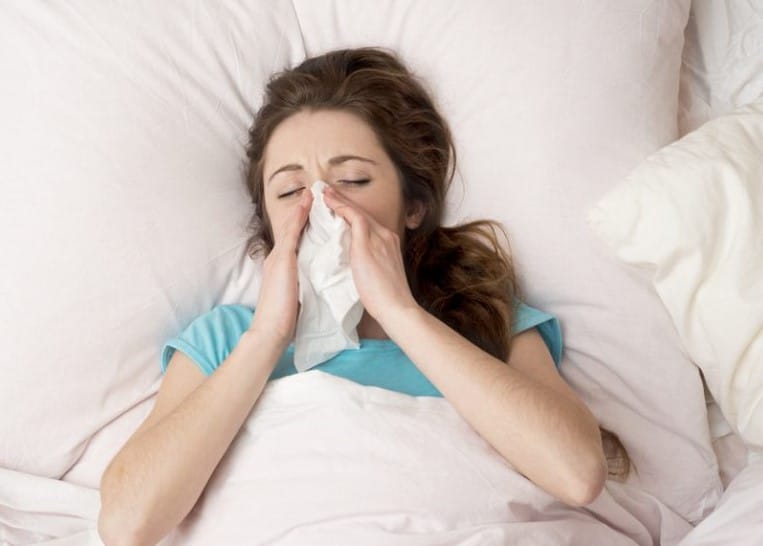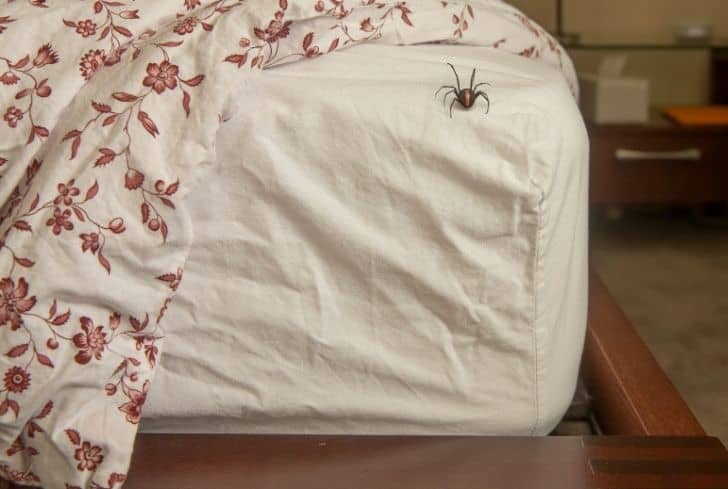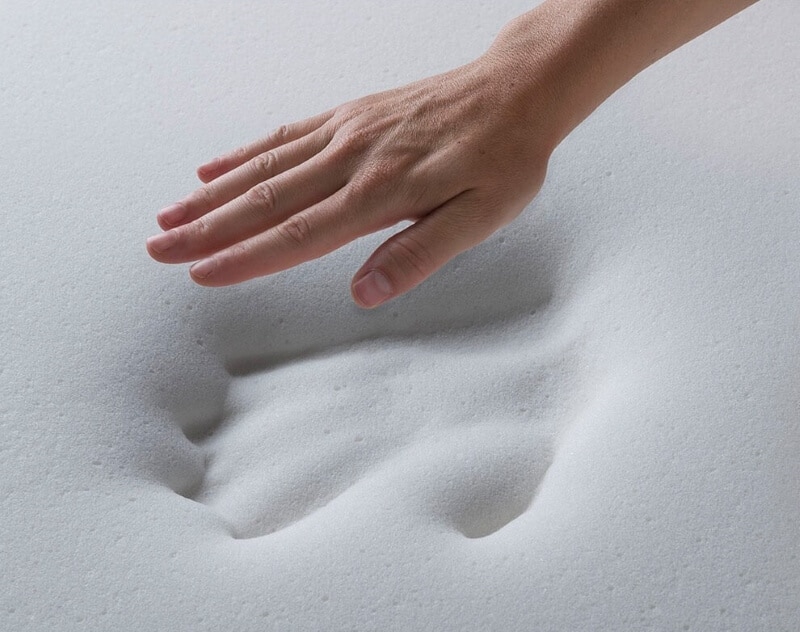

The Covid pandemic has impacted each person’s life in many ways. From financial ruin to pandemic paranoia, to worsening mental health, to general fatigue, the Covid-19 pandemic has affected the entire international community. Starting in the November of 2019, the Covid-19 pandemic has shaken the world to its core. Over the years, this impact has not decreased.
Having trouble sleeping is just one way that Covid-19 impacts the lives of those that get it. This has increased to a phenomenon called Covid insomnia. The connection between Covid-19 and sleep is not only direct, but the pandemic itself has quite the impact on sleep. Simply said, Covid-19 interferes with sleep. For many people, sleep problems aren’t anything new. Sleeping throughout the night is currently hard to do. Coronavirus has many direct and indirect ways it interferes with sleep.
Patients who currently have Covid-19 are most likely to report sleep problems and increased sleep disorders and disturbances. Nearly three-quarters (75%) of patients report trouble sleeping Trusted Source Sleep problems during the COVID-19 pandemic by population: a systematic review and meta-analysis | PubMed Patients with active COVID-19 appeared to have higher prevalence rates of sleep problems. pubmed.ncbi.nlm.nih.gov due to their symptoms of Covid-19.
Directly speaking, Covid is worse at night and not just for those that are sick with the virus. Many people can’t sleep because of the Covid-19 pandemic as Covid-19 is an infectious disease caused by the SARS-CoV-2 virus. This virus is a respiratory illness, thus impacting the respiratory system, primarily the lungs. Beyond sleep disorders, some of the symptoms include nasal congestion, sore throat, headache, nausea, chills, and dizziness. These symptoms make sleep hard, if not impossible.
Sleep disorders aren’t new or even isolated to the Coronavirus. This pandemic has certainly impacted sleep disorders in general. Regardless of whether someone has caught the virus, there is a widespread impact on people’s sleep.
A report from the American Academy of Sleep Medicine shows that the prevalence of sleep problems during the COVID-19 pandemic is high, and it “ affects approximately 40% of people from the general and health care populations Trusted Source Sleep problems during the COVID-19 pandemic by population: a systematic review and meta-analysis | PubMed The prevalence of sleep problems during the COVID-19 pandemic is high and affects approximately 40% of people from the general and health care populations. pubmed.ncbi.nlm.nih.gov ”. Sleep disorders are less common than other symptoms, but they aren’t unheard of in Covid-19 cases. Sleep issues and corona both impact one another, making the other one worse.
Patients with active COVID-19 are the most at risk, with health care workers running a close second with comparative rates of sleep problems. Health care workers and other frontline workers are currently working in one of the most stressful periods in the 21st century. That level of stress and accountability is detrimental to begin with. Add in heightened political tensions, lowered financial security, increased need but decreased support for frontline workers, and it’s beyond stressful for frontline workers currently.
Sleep apnea isn’t much talked about beyond the common symptom of snoring. However, it’s a worrisome condition by itself. Sleep apnea and Covid-19 are not a helpful combination, especially when adding Covid to the existing condition of sleep apnea. These exacerbated, and often intense flu-like symptoms simply make breathing harder. That, in turn, makes it harder to get into a comfortable position for a comfortable night’s sleep.
Sleep Apnea Causes & Symptoms
Sleep apnea, also known as obstructive Sleep Apnea (OSA), is a phenomenon that occurs when the airway collapses either partially or completely throughout the night. The soft tissues in the mouth and throat relax during sleep. For those with sleep apnea, that relaxed tissue is enough to block the airway. This lowers the oxygen levels in the bloodstream, causing hundreds of short awakenings during the night.
Sleep apnea symptoms can include fatigue, tiredness, daytime sleepiness, snoring, cognitive and behavioral problems, attention issues, mouth breathing, parasomnias, bedwetting, weight loss, or weight gain. Combined with Covid-19, sleep apnea provides an added danger and risk to the patient. Ensuring quality of sleep assists patients of Covid-19 with a better immune response required to fight off the respiratory virus.
Sleep Apnea Care
There are several simple solutions and aids for sleep apnea. It all starts with reaching out to those that can help the best. Reach out to a health care professional for a sleep test to confirm sleep apnea. That is the first step to determine the severity and the best solution required.
However, there are more immediate solutions, such as resting in an elevated position to keep all airways clear. Among these solutions is improving your bedding with pillows explicitly designed for those with sleep apnea.
Typically insomnia impacts older adults, women, and those with higher stress levels or mental health issues. However, with the pandemic, that list is growing exponentially. Insomnia specifically is something that impacts everyone regardless of whether they’ve contracted corona directly. Frontline workers, the unemployed, caregivers, and young adults are also facing increased insomnia symptoms.
Insomnia Causes & Symptoms
A large list of things can cause insomnia. One of the reasons people can’t sleep is Covid-19 as well as other respiratory illnesses, contagious viruses, and infectious diseases. There are several other causes beyond communicable ailments. Insomnia can be for a range of reasons, from arthritis, mental illness, drug use, anemia, fibromyalgia, and chronic kidney disease, among many others.
Covid insomnia symptoms can include difficulty falling asleep, difficulty staying asleep, difficulty paying attention, increased errors, constantly waking up in the middle of the night, and general fatigue. Altogether, these symptoms interrupt one’s ability to function in normal day-to-day life. Although a simple night’s sleep can solve many of these issues, it’s not simple to obtain.
Insomnia Care
Insomnia can happen for a variety of reasons. Usually, it’s a combination of these reasons that limit a person’s ability to sleep properly. Reach out to a health care professional such as a doctor or a general practitioner for tests or a diagnosis to explore and confirm the causes of insomnia. That is the first step to determine the cause or causes and the proper treatment.
Insomnia may be an issue in itself where there isn’t an easy answer. The care for this is typically provided by a doctor depending on the individual’s needs, whether sleeping medication, prescribed meditative activities, continued therapy, and many other solutions.
Working to address other indirect concerns may help with insomnia if there are underlying causes. For example, fibromyalgia is a condition resulting in widespread pain, fatigue, and sleep issues. Getting to sleep is hard, and sometimes it’s even harder to stay asleep with fibromyalgia. One solution is to simply increase the comfort in bed. Finding the best bedding and pillows not only for your comfort but also for heat regulation, textures, styles, adjustability, and allergens.
The coronavirus pandemic has lasted much longer than anyone could have predicted or feared. Problems from Lack of Sleep due to Coronavirus is becoming increasingly widespread as the pandemic continues. It’s gotten to the point that it has its title. Coronoasomnia, otherwise known as corona insomnia, Pandemic fatigue, lockdown burnout, is the phenomenon of widespread sleep disorders and sleep disturbances throughout the pandemic.
Symptoms of corona insomnia can include typical insomnia symptoms, as well as increased anxiety levels, heightened stress, sleep deprivation, difficulty maintaining sleep routines, difficulty performing day-to-day activities, and general worsening health. Keep up to date on what to look for in terms of symptoms.
The Covid-19 pandemic has a lot of stress surrounding it regardless of if someone physically catches the illness. The stress related to the pandemic itself is quite high. That’s where stress-related fatigue comes in. It’s pretty common for individuals with consecutive high periods of high stress to suffer a consistent sense of fatigue along with the symptoms of fatigue.
Before the pandemic, a third of the entire population experiences insomnia Trusted Source Sleep problems becoming risk factor as pandemic continues | Harvard Gazette Too many sleepless nights can aggravate both physical and mental health problems, but a few simple adjustments to our already altered routines may resolve our bedtime issues before they snowball. news.harvard.edu of one form or another, whether it’s acute, or short-term, or long-term. From those respondents, nearly 7 in 100 developed chronic insomnia, which means having sleep issues at least three nights a week over the last three months. This statistic is based on an average moment in time, not a worldwide pandemic where stress and panic are rampant. Adding the worldwide pandemic on top of this elevated level of insomnia is a worry.
In an article with the Harvard Gazette, Posner continues to say that The actions are taken to protect people from the Covid-19 pandemic “not only precipitate problems with sleep but lead to chronic problems with sleep”.
During the pandemic of Covid-19, there have been several lockdowns, travel bans, and limitations on movement designed to stop the spread of the virus. This is for the safety of the population as well as the safety of those vulnerable to the virus.
However, this leads to elevated levels of isolation. As sociable animals, humans thrive with socialization and contact. Without it, stress and depression are heightened. Heightened stress is not only a prominent symptom of sleep disorders but also a cause for them as well. This creates a seemingly endless cycle.
Another impact of the covid-19 pandemic is the loss of daily routines. This has had a significant impact on everyone. Regularities within the world and the day-to-day keep stress levels lower. Unfortunately, there hasn’t been much consistency throughout the world with the constant change in reaction to the shifts in the pandemic.
Donn Posner, president of Sleepwell Associates and an adjunct clinical associate professor at Stanford University School of Medicine, explains that the daily disruption of regular routines worsens the sleep-robbing stress of the pandemic. Trusted Source Sleep problems becoming risk factor as pandemic continues | Harvard Gazette Calling the current situation a “perfect storm of sleep problems,” Donn Posner, the forum’s featured speaker, pointed out how disrupted daily routines worsen the sleep-robbing stress of the pandemic. news.harvard.edu
Sleep has immense health benefits from mental health to physical to emotional health. It also improves the body’s immune system. One of the best things someone can do for their health is to rest. The human body requires sleep to improve its immunity by release cytokines during the sleep cycle. These cytokines play a vital role in human health. Without this release, the body is less prepared to fight off any kind of infection, even as simple as the common cold.
Sleep is vital. It’s essential to get the recommended hours of sleep. If you have trouble sleeping after covid, you’re not alone. Many others are struggling with a good night’s sleep. The Mayo Clinic Trusted Source Lack of sleep: Can it make you sick? | Mayo Clinic Studies show that people who don’t get quality sleep or enough sleep are more likely to get sick after being exposed to a virus, such as a common cold virus. www.mayoclinic.org suggests that most adults require seven to eight hours of quality sleep each night.
Sleeping can be difficult for a range of reasons. Something as simple as a bed frame or mattress shouldn’t be an issue. Reviews and users rave about the Dusk Luxe Mattress From Helix, because of this award-winning mattress for its zoned lumbar support, with a breathable cover with an extra 2 inches.
Poser explains in The Harvard Gazette that forcing sleep isn’t the way to go about it, “If you can’t sleep, do not try to force it. Good sleepers put no effort into sleep whatsoever.”
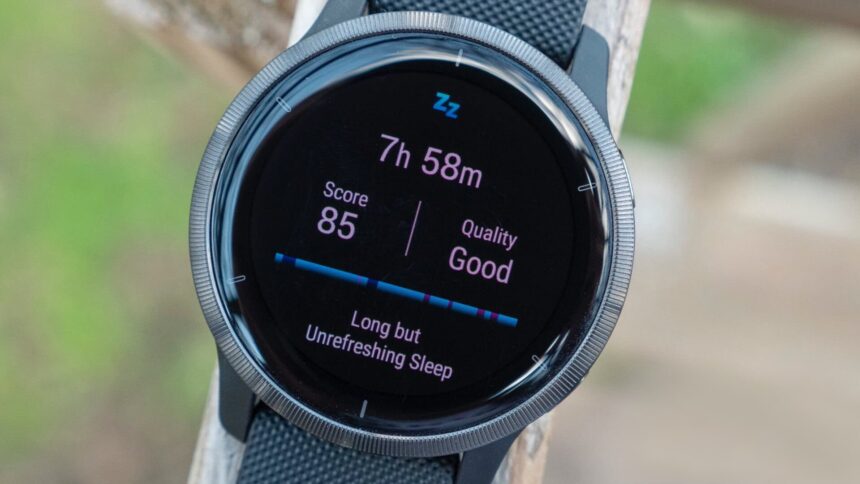
One’s sleep hygiene is a valuable thing to know to combat sleep disorders and improve sleep overall.
Getting a good night’s sleep is hard. Sleep can still be elusive to even the most comfortable and prepared sleepers regardless of doing everything right. One can exercise an hour a day, eat right for each meal, meditate for 20 minutes before bed, have an entirely optimized bedspread and mattress, and still not get enough sleep. It can be hard to know exactly what keeps someone from sleeping. The top best fitness and sleep trackers on the market can not only keep track of sleeping cycles but often report on snoring patterns, breathing disturbances, blood pressure, heartbeat, and so on.
Having a routine will help regulate one’s sleep cycle. The consistent nature of a routine helps enforce a sleep cycle.
Posner continues to explain that new and ever-changing schedules during the pandemic have worsened the overall fatigue. Without the typical daytime schedule filled with work, socializing, recreation, physical activity, there’s not a lot to structure the day.
A bedroom is a room for very few things. Sleeping is the top of those things. Having a bedroom optimized for sleeping aids in falling and staying asleep. Ensure that the bedroom is dark, cool, quiet, with limited artificial light.
Ensuring that your bedding is as comfortable as possible is one way to optimize a bedroom. The Ventilated Memory Foam Pillow available through Brooklyn Bedding is highly suggested by its users because of its increased ventilation, contouring comfort, antimicrobial and allergen resistant materials, and sleek modern design.
Spending less time on media, whether that’s cell phone games, video games, social media, television, movies, and so on, can be distracting the brain from the sleep it needs.
This is especially important during the pandemic as online media has increased feelings of stress, anxiety, depression, isolation, and hopelessness. Media such as news, social media, have a direct impact on that. Add in the political stress surrounding the pandemic, and there’s no shortage of stressful topics.
Since the beginning of the pandemic, there has been nearly endless content relating to Covid-19. This has left many people with elevated concerns regarding their health, home, and finances. There are always updates, news stories, press releases, new lockdowns, and increasing cases and deaths. There doesn’t seem to be an end in sight. This is beyond hopeless for the average person.
Physical activity is one proven way to regulate someone’s sleep cycle. At the simplest level, being physically active is tiring. It makes sleep come easier. Simply going out for a walk around the local neighborhood is a great way to increase physical activity.
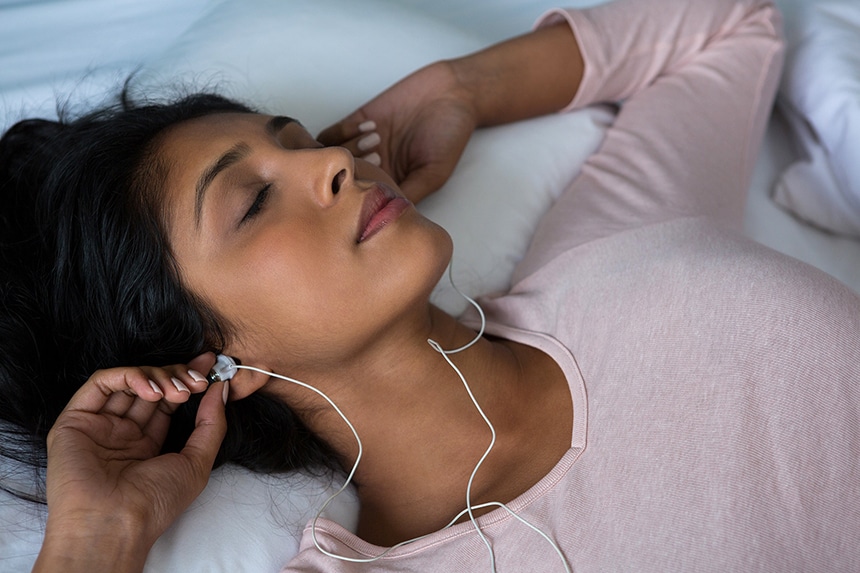
Relaxation is one of the best ways to ensure a good night’s sleep. However, it is one of the hardest states of mind to achieve, especially during the Covid-19 pandemic. Mindfulness as a practice is very prominent with several self-help apps, books, and even online workshops.
Listening to music is a fantastic way to not only unwind from the day but to process the stress and emotions of the Covid-19 pandemic. Finding the right music for a sleeping soundtrack is one way to clear the mind before bed.
The connection between Сovid-19 and sleep is not fully disclosed. But we know that during the pandemic, there has been an increase in fatigue known as Coronoasomnia. The impact that Coronavirus has on sleep is immense. Whether the sleep disorder is caused by the Covid-19 virus itself or indirectly caused by the Covid-19 pandemic, it’s harder to get a good night’s sleep.
There are multiple ways to improve one’s sleep during the pandemic and even after the pandemic has settled down. Getting seven to eight quality hours of sleep each night improves not only mental health but physical and emotional health.
